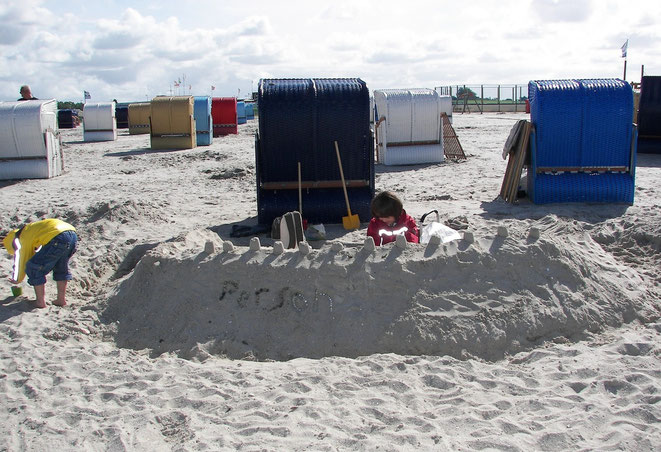by Hermann Kracke
Yes. Years. The first part of the title is a common idiom in Germany claiming that the spheres of work and private life should always be strictly separated in interaction with one’s friends (sometimes even family) but particularly when dealing with your business contacts.
This is another aspect of many Germans’ ambition to focus on their work entirely - so committed and task-oriented that allowing personal or emotional matters like friendships or private amusement to interfere at work will actually feel unprofessional to them and thus inappropriate.
Herr Meier aus dem Controlling
It is therefore in German offices quite possible to sit door to door next to each other - sometimes for years - without knowing all that much about your colleague - meaning beyond what you would also put on your CV and share publicly in business anyway.
Many may at least not often bring up private issues at work (except perhaps after a few beers too many at the annual company Christmas party) fearing to be perceived as weak or not daring to disclose any soft spot that may at a later point be exploited.
My home is my castle

When I was a young boy and my parents took me to the German Ocean such circular embankments of sand around where people used to sit at the beach still were a very common sight.
On the one hand you could nicely separate your beach ‘property’ from the territory of your neighbor, organize and keep your belongings together. On the other building your castle of sand for hours - if not days including collecting buckets full of shells or stones to later engrave your family name on the outer wall - would deliberately disperse any trace of objectionable idleness otherwise associated with just relaxing lazily at the beach.
Well, it also used to keep us kids busy, something I only recently learn to appreciate enough since I’m a dad myself ;-)
Even if this habit has apparently become less common in the last 10 to 20 years it shows that separation and regulation of distance for Germans initially is the default approach to interacting with other people - and be it in your leisure time at the beach.
It may give way to friendship and increasing intimacy later on but reaching out to new people in a light, could-hug-the-whole-world type of fashion certainly not is how many here including myself are equipped to view the world in the first place.
Du or Sie?
Another good example, by the way, are the two German forms of “you” - familiar “Du” and formal “Sie” when addressing other people in the German language, distinctly separated and not easy to ignore.
Two lonely Indians
Three years ago two project managers of a client had been sent to the location of a German partner at Leipzig for a month of extensive on-site training. That company had helped put them up in an apartment not far from the office, explained them how to get there, where to go for lunch and obviously designed an individual and beautifully detailed training schedule for every day of the week.
That was for every work day of the week, of course. While the training sessions worked like a charm and a great deal of know-how was successfully transferred - the weekends of the two young team leaders who had not been to Europe before (or any other country out of India) were not incredibly eventful. Lacking any program, contact or drive to explore that unknown city by themselves they ended up spending most of their spare time on the weekends in the apartment calling their families at home and watching TV.
Their well meaning German trainers had simply not figured out their Indian guests would appreciate some joint activity over the weekend. More importantly their free time on the weekend was obviously reserved for their own friends, family and hobbies. It would not have occurred to them at all to sacrifice some of their private weekend time for some out of office work obligation.
At least not until German colleagues later on reciprocated the visit and for themselves got to explore different approaches to hospitality in other cultures such as India where a western project manager on an assignment will usually receive so many dinner invitations to people’s homes to find it hard to attend them all in a limited period of time.

Take away: Separation of work and private life
If your German business partner seems distanced or cold to you this is supposedly not his only (nor even dominant) trait of character. More likely the context of your interaction may trigger him to act this way trying to behave correctly in what he perceives the situation to be - a professional business transaction.
Knowing that the spheres of private life and work do not overlap so much in Germany and that a business partner for a German in the first place is a formal contact should help not to take such a rather distanced demeanor personally.
While you will understandably be curious to learn a few personal things about the human being you are dealing with - do not make these the first you ask them for at the beginning of a relationship - or of a meeting for that matter.
Better not be too specific or inquisitive when it comes to any really personal issue in case you happened to overhear one at a business occasion.
As for building trust in general be prepared to invest a lot of time into developing the relationship with your German business partner. Germans do, of course, cherish friendship - it can just take us some time to warm to others.


Write a comment